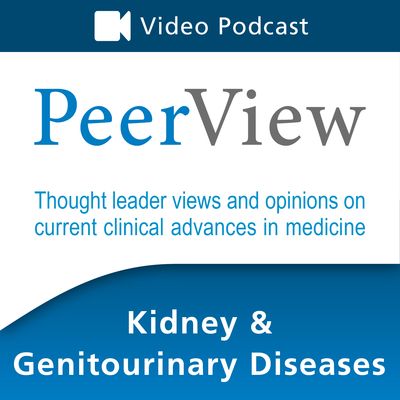PeerView (PVI) is a leading provider of high-quality, innovative continuing education (CME/CE/CPE and MOC) for clinicians and their interprofessional teams. Combining evidence-based medicine and instructional expertise, PeerView activities improve the knowledge, skills, and strategies that support clinical performance and patient outcomes. PeerView makes its educational programming and expert-led presentations and symposia available through its network of popular podcast channels to support specific specialties and conditions. Each episode includes a link to request CME/CE credit for participation. PeerView is solely responsible for the selection of topics, the preparation of editorial content, and the distribution of all materials it publishes.
http://ww2.peerview.com
Saira Z. Sheikh, MD, FAAAAI, FACAAI, FACR, Brad Rovin, MD, FASN, FACP - Improving the Patient Experience in SLE and LN: The Intersection of Early Diagnosis, Individualized Treatment, and Culturally Competent Care
Go online to PeerView.com/JPU860 to view the activity, download slides and practice aids, and complete the post-test to earn credit. Observed differences in healthcare disparities for patients with systemic lupus erythematosus (SLE) and lupus nephritis (LN) have led to the recognition of racial and ethnic minorities as an independent predictor of worse disease outcomes in SLE/LN. Earlier diagnosis, earlier intervention, treatment strategies targeted to clinical remission or low disease activity, and effective communication and collaboration between providers and patients could offer the opportunity to reduce damage, thus improving long-term outcomes. Through a collection of short, focused educational modules, this PeerView activity allows learners to combine self-assessment with concise clinical content in an interactive format. Drs. Sheikh and Rovin will explore the emerging concept of treat to target, as well as the use of currently available and new/emerging biologic therapies, along with strategies to help learners optimize treatment for patients with SLE/LN. Upon completion of this activity, participants should be better able to: Diagnose SLE, including LN, as early as possible in the course of disease to prevent organ damage and initiate appropriate therapy; Monitor disease activity and response to treatment in SLE and LN based on individual patient needs; Select appropriate treatment for SLE and LN to reduce disease activity, prevent organ damage, minimize drug toxicity, and improve quality of life; and Deliver patient-centered and culturally competent care to improve management of symptoms and promote adherence to long-term treatment in patients with SLE and LN.
